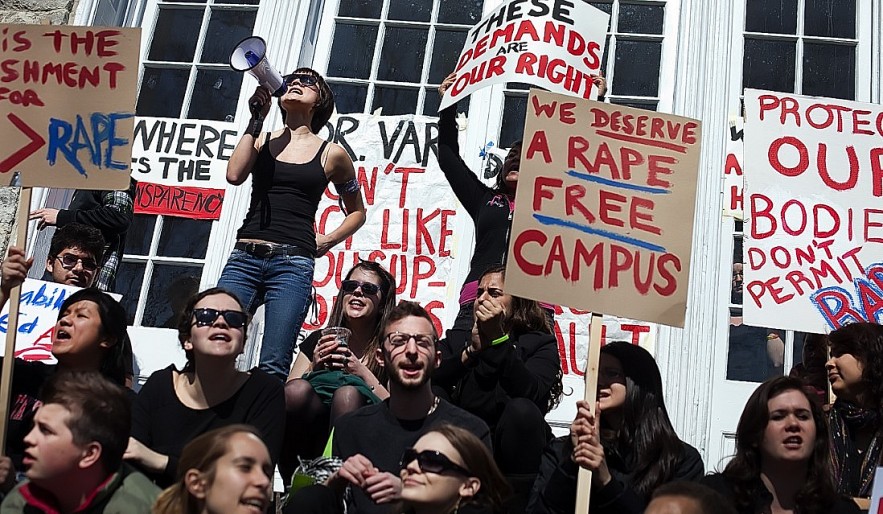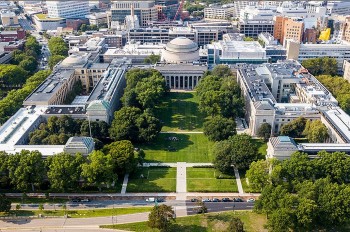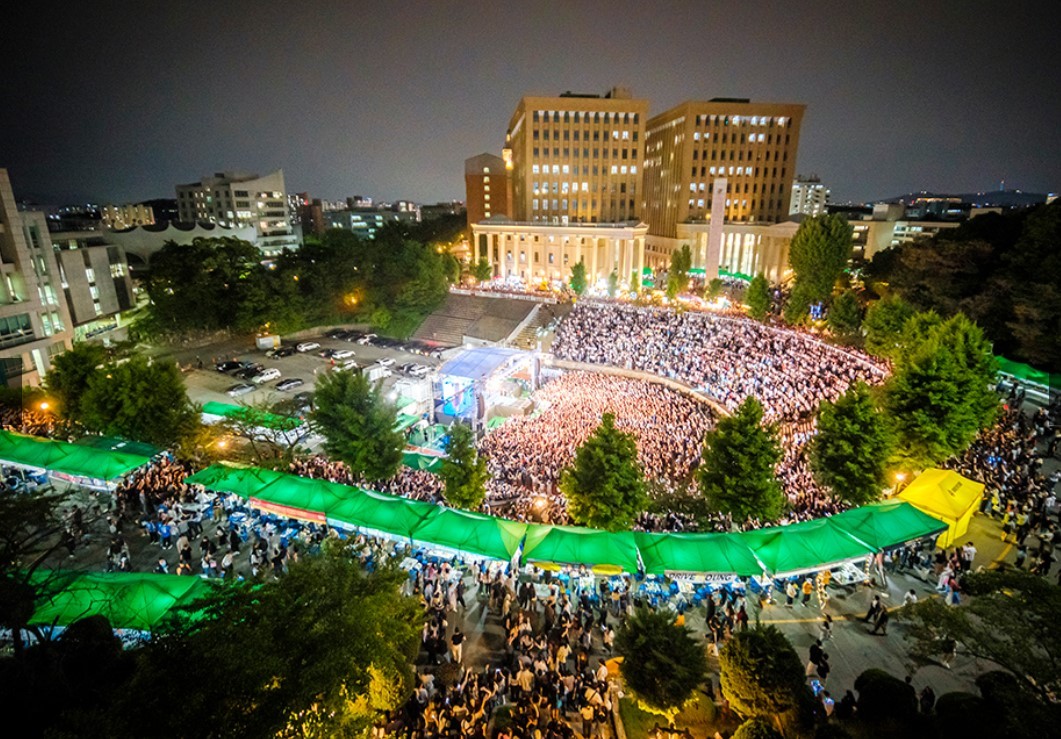Top 20+ Most Dangerous College Campuses in the U.S
 |
| The most dangerous college campuses in America |
| Table of Contents |
Disclaimer and Quick Facts About Crime on U.S College Campuses
Without taking into account relative campus size, the following list of the most dangerous colleges in America ranks them according to the absolute number of violent crimes.
To compile a list of the riskiest colleges, we examined data from the U.S. Department of Education.
We examined violent crime statistics at more than 14,000 colleges and universities across America from 2019 to 2021 to compile a list of the most dangerous college campuses.
60% of all violent crimes in our analysis (2019–2021) involve rape.
The Clery Act was enacted in 1990.
The Clery Act says that every college or university that gets federal aid must report any crimes that happen on or near their campuses once a year.
The FBI's 2019 list of known crimes committed by college and university students in the US shows that property crime, theft, burglary, motor vehicle theft, and robbery are all very common across the country. These crimes are all basically the same thing: stealing someone else's things or, in the case of burglary, stealing those things before they are stolen.
That being said, this data only includes known, reported incidents. All of these schools have a lot of students, so they might not seem as bad as schools with fewer students. The National Sexual Violence Resource Center says that a lot of rapes aren't reported because the information doesn't get to the right people in time or at all. The FBI's crime numbers are also from the year after the student population numbers, which are from 2018.
There were 27,300 crimes in the following categories that were reported to police and security groups in 2019.
It's also possible that crime rates are higher in cities than in more rural areas because many of these schools are in crowded cities. For a long time, that was often the case. To help you understand why these college campuses are so dangerous, here are some of the most dangerous in the United States.
♦ Check More: Top 10+ Worst Colleges That Have The Most Crimes In The US
What is a violent crime on U.S College Campuses?
The use of force or the threat of using force against a person constitutes a violent crime. The FBI lists the following as violent crimes: Rape; Murder/manslaughter; Aggravated assault; Robbery.
These crimes are defined as follows by Campus Safety and Security:
Rape – The slightest penetration of the vagina or anus with any body part or object, as well as the oral penetration of another person's sex organ without the victim's consent.
Murder/non-negligent manslaughter – The willful (non-negligent) killing of one human being by another.
Negligent manslaughter – The killing of another person through gross negligence.
Robbery – The taking or attempting to take anything of value from the care, custody, or control of a person or persons by force or threat of force or violence and/or by putting the victim in fear.
Aggravated assault – a criminal assault committed by one person against another with the intent to cause great bodily harm. This kind of assault frequently includes the use of a weapon or other methods that are likely to result in death or severe physical harm.
We only looked at violent crimes that happened on campus because a lot of colleges own and manage properties close to their main campuses.
In their definition, Campus Safety and Security says that "on campus" means "a reasonably contiguous geographic area comprising of buildings or properties that are owned or controlled by an institution and utilized for educational purposes, including residence halls."
It also includes any building or land that belongs to the university but is managed by someone else, is often used by students, and serves institutional goals (like a food or store vendor).
Learn more: Top 10 Safest College Campuses In The US Today
Top 23 Most Dangerous College Campuses in the USA
| University name | Number of violent crimes on campus reported between 2019-2021* |
|---|---|
| 1. University of Michigan, Ann Arbor | 1,468 |
| 2. Ohio State University | 583 |
| 3. UC Berkeley | 242 |
| 4. Xavier University | 240 |
| 5. University of Iowa | 225 |
| 6. Geisinger Commonwealth School of Medicine | 194 |
| 7. The Pennsylvania State University | 138 |
| 8. Stanford University | 138 |
| 9. Texas A & M University, College Station | 116 |
| 10. University of Minnesota, Twin Cities | 114 |
| 11. University of Southern California, University Park Campus | 111 |
| 12. University of New Mexico | 110 |
| 13. Vanderbilt University | 109 |
| 14. Auburn University | 108 |
| 15. Texas State University | 98 |
| 16. Texas Tech University, Lubbock | 96 |
| 17. The University of Alabama | 95 |
| 18. Drexel University, University City Campus | 90 |
| 19. University of Houston, Central Campus | 88 |
| 20. University of Arizona | 87 |
| 21. University of Florida, Gainesville | 87 |
| 22. UC San Diego | 85 |
| 23. Michigan State University | 84 |
*This table does not include statutory rape, and combines murder, negligent manslaughter, and non-negligent manslaughter.
Most Dangerous Campuses Per 100,000
As previously mentioned, we did not consider institution size when compiling the list of the most dangerous colleges. The number of violent crimes broken down by institution size is shown in the list below.
| University name | Number of violent crimes on campus per 100,000 students* |
|---|---|
| 1. Geisinger Commonwealth School of Medicine, Central Danville Campus | 10,430 |
| 2. Xavier University | 1,161 |
| 3. University of Michigan, Ann Arbor | 1,005 |
| 4. Ohio State University | 316 |
| 5. Prairie View A & M University | 290 |
| 6. Stanford University | 271 |
| 7. Vanderbilt University | 269 |
| 8. University of Iowa | 246 |
| 9. UC Berkeley | 185 |
| 10. University of New Mexico | 164 |
| 11. Drexel University, University City Campus | 127 |
| 12. Auburn University | 116 |
| 13. Johns Hopkins University | 93 |
| 14. Texas State University | 86 |
| 15. The University of Alabama | 83 |
| 16. Texas Tech University, Lubbock | 80 |
| 17. University of Southern California, University Park Campus | 77 |
| 18. University of Minnesota, Twin Cities | 73 |
| 19. UC San Diego | 70 |
| 20. University of North Texas | 64 |
| 21. University of Arizona | 63 |
| 22. University of Houston, Central Campus | 63 |
| 23. Michigan State University | 56 |
*This figure shows the number of annual violent crimes per 100,000 students.
Between 2011 and 2018, the Bureau of Labor Statistics says the number of injuries to medical professionals caused by violent attacks rose by 63%.
Aggravated assault rates on medical campuses are always high when data is looked at. Every class at Geisinger's Central Danville Campus has about 620 students. Between 2019 and 2021, there were about 189 aggravated assaults on campus. This is 97.4% of all violent crimes.
The higher rates of aggravated assault are partly due to the fact that many medical campuses have hospitals on-site. The American Nurses Association says that most states make assaulting medical staff a more serious crime, sometimes even a felony. In some states, even making threats over the phone to healthcare workers can be a felony. The numbers above include staff members who were attacked by patients on hospital grounds.
Statistics of Rape on College Campus
In 2019, 43% of all criminal incidents involved forcible sex offenses (rape and fondling). Only 20% of female college students between the ages of 18 and 24 report sexual assault to the police, according to RAINN.
Rape makes up 60.4% of all violent crimes that we analyzed between 2019 and 2021 in the colleges that made our list of the most dangerous ones.
Out of all violent crimes, rapes account for an above-average portion of incidents on campus at the following schools. Some of these colleges are not on the list of the most dangerous colleges mentioned above, but they are included here because their rape rates were higher than average.
FAQs
What percentage of college men will be the victim of sexual assault?
2.5% of men are raped or sexually assaulted by being forced, threatened, or unable to do anything. This group of men (18–24 years old) is 78% more likely to be raped or sexually assaulted than people in the same age range who are not in college.
What percentage of women are sexually assaulted in college?
Undergraduate students are more likely to become victims of rape or sexual assault due to physical force, violence, or incapacitation than males (6.8% vs. 26.4%).
When are students at a higher risk for sexual assault?
During the first few months of their first and second semesters of college, students are more at risk. Between August and November, more than 50% of sexual assaults on college students take place.
What schools are doing about campus safety
The vast majority of college campuses place a high priority on campus safety. We take both criminal activity and the potential for active shooters on campus very seriously. Universities take a variety of approaches to making sure that people are safe on their campuses.
In Conclusion
Campus safety is crucial for maintaining the health and safety of those who live, work, and visit there as well as for fostering a secure environment for all faculty, staff, and students. To ensure campus safety, the majority of campuses have campus police, security, emergency services, and counseling services for both students and staff.
 Top 15 Oldest University Campuses in the United States Top 15 Oldest University Campuses in the United States The following list ranks the top ten most aesthetically pleasing college campuses in the United States with respect to both their historical architectural significance and ... |
 Top 10+ Most Beautiful University Campuses In the World Top 10+ Most Beautiful University Campuses In the World These picturesque campuses make us long for the days of classroom learning. These are some of the most attractive universities in the world. |

























